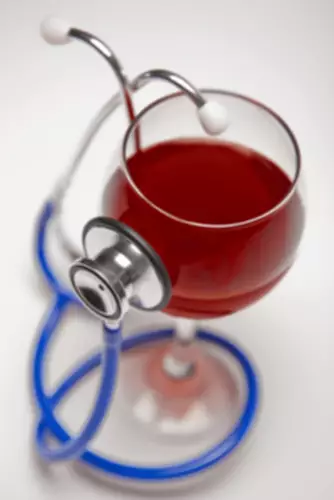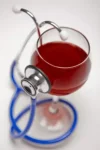
The symptoms of alcohol intoxication range from mild to severe, depending on how much alcohol a person consumes and how quickly their body metabolizes it. Severe alcohol intoxication — or alcohol poisoning — is a dangerous condition that requires immediate medical attention. Alcohol poisoning is a dangerous condition that can happen when someone drinks too much alcohol too quickly. When the body is overwhelmed by a toxic amount of alcohol, it can severely affect vital functions. Older adults — drinkers, nondrinkers, it doesn’t matter — are already at risk for hypertension.

Alcohol Poisoning Medications
- If you have overdosed on alcohol or have come close, you should consider seeking professional help and an evaluation for potential alcohol addiction.
- People with alcohol use disorder (AUD) are more at risk for alcohol poisoning.
- Unlike food, which can take hours to digest, the body absorbs alcohol quickly — long before most other nutrients.
Although alcohol makes you fall asleep faster, it interrupts your natural sleep-wake cycle (or circadian rhythm). Alcohol dramatically impacts the quality and quantity of rest you get, further contributing to hangover symptoms. As the alcohol is metabolized and wears off, your brain works to restore chemical balance. It lowers levels of GABA—making you feel less calm—and boosts glutamate, which increases anxiety. Acetaldehyde contributes to inflammation in the liver, pancreas, intestinal tract, and brain, among other organs.
Alcohol Poisoning Risk Factors
Look for signs of overdose, including slowed breathing, low body temperature or loss of a warning sign or symptom of alcohol poisoning is consciousness. Heavy drinking and binge drinking are also risk factors for alcohol addiction. Drinking regularly increases your tolerance to alcohol, but it doesn’t decrease your risk of getting alcohol poisoning. Alcohol dependence is a factor in 30 percent of deaths from alcohol poisoning, according to the CDC.
Before Calling Emergency
If someone is experiencing alcohol poisoning, they should receive immediate medical care in order to stay alive. Alcohol is measured in your blood as blood alcohol concentration (BAC), the percentage of your blood that is alcohol. 0.08 is the legal limit; anyone at or above this level is considered legally impaired. The exact BAC considered alcohol poisoning will vary for everyone; however, a BAC of 0.25 or above is generally considered to be the range in which alcohol poisoning occurs.
- Heavy drinking and binge drinking are also risk factors for alcohol addiction.
- You might initially notice mild effects like slurred speech, forgetfulness, or clumsiness.
- The mission of the campaign is to help Service members learn to drink responsibly, if they choose to drink alcohol.
- Alcohol poisoning happens when there’s too much alcohol in your blood, and parts of your brain shut down.
- Alcohol poisoning occurs when the blood alcohol content (BAC) rises to a level that impairs the body’s normal functions.
Related MedlinePlus Health Topics
When a person drinks alcohol, ethanol passes through the digestive system and enters the bloodstream through the linings of the stomach and intestines. If an individual drinks alcohol on an empty stomach, their BAC usually peaks within 30–90 minutes. These symptoms often occur in stages, depending on how intoxicated a person is.

Alcohol Poisoning Treatment
Dangerous alcohol use comes with a lot of life-threatening issues. This includes liver damage, addiction, workplace injuries, and car accidents. Most people become severely impaired and risk experiencing alcohol poisoning when their BAC rises above 0.16 percent.
Alcohol Poisoning: Symptoms, Causes, Treatment & Prevention

A blood alcohol concentration (BAC) of 0.250% to 0.399% is considered alcohol poisoning. BAC measures the amount of alcohol in the bloodstream and describes the effects of different BAC levels. Keep reading to learn more about the critical signs and symptoms of alcohol poisoning, immediate actions to take if someone Oxford House is suffering and the importance of medical intervention.
- People may feel euphoric while drinking alcohol because ethanol stimulates the release of dopamine, a feel-good chemical in the brain.
- For a man, binge drinking is when you have five or more drinks in less than 2 hours.
Drinking games with beer bongs and funnels encourage participants to binge drink. Binge drinking leads to faster intoxication, and may even cause choking. If you suspect someone is suffering from an alcohol overdose, do not try to ‘wake them up’ with a cold shower, coffee, or walking around. Even if someone survives asphyxiation, they may suffer from permanent brain damage.

Leave A Comment